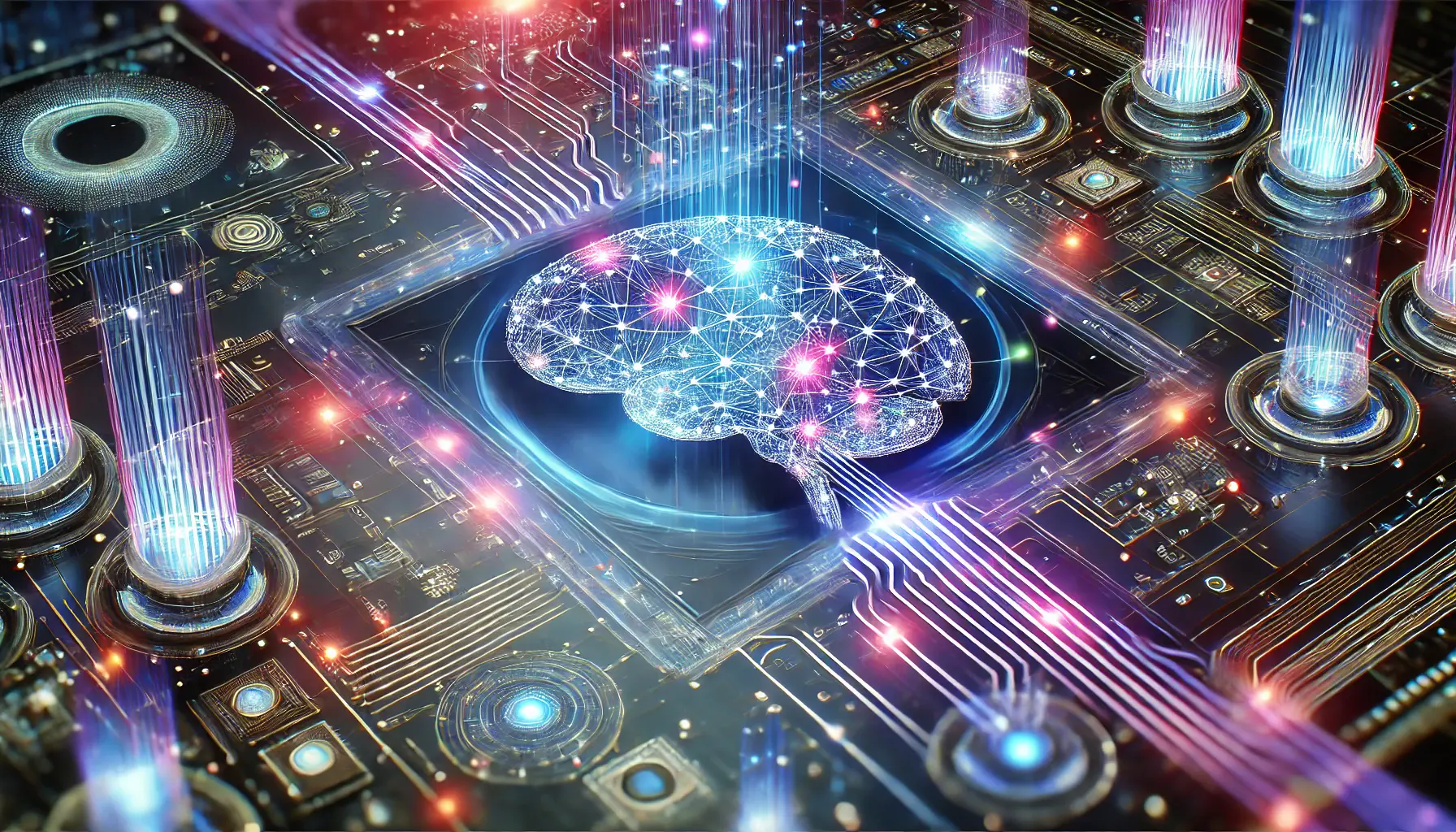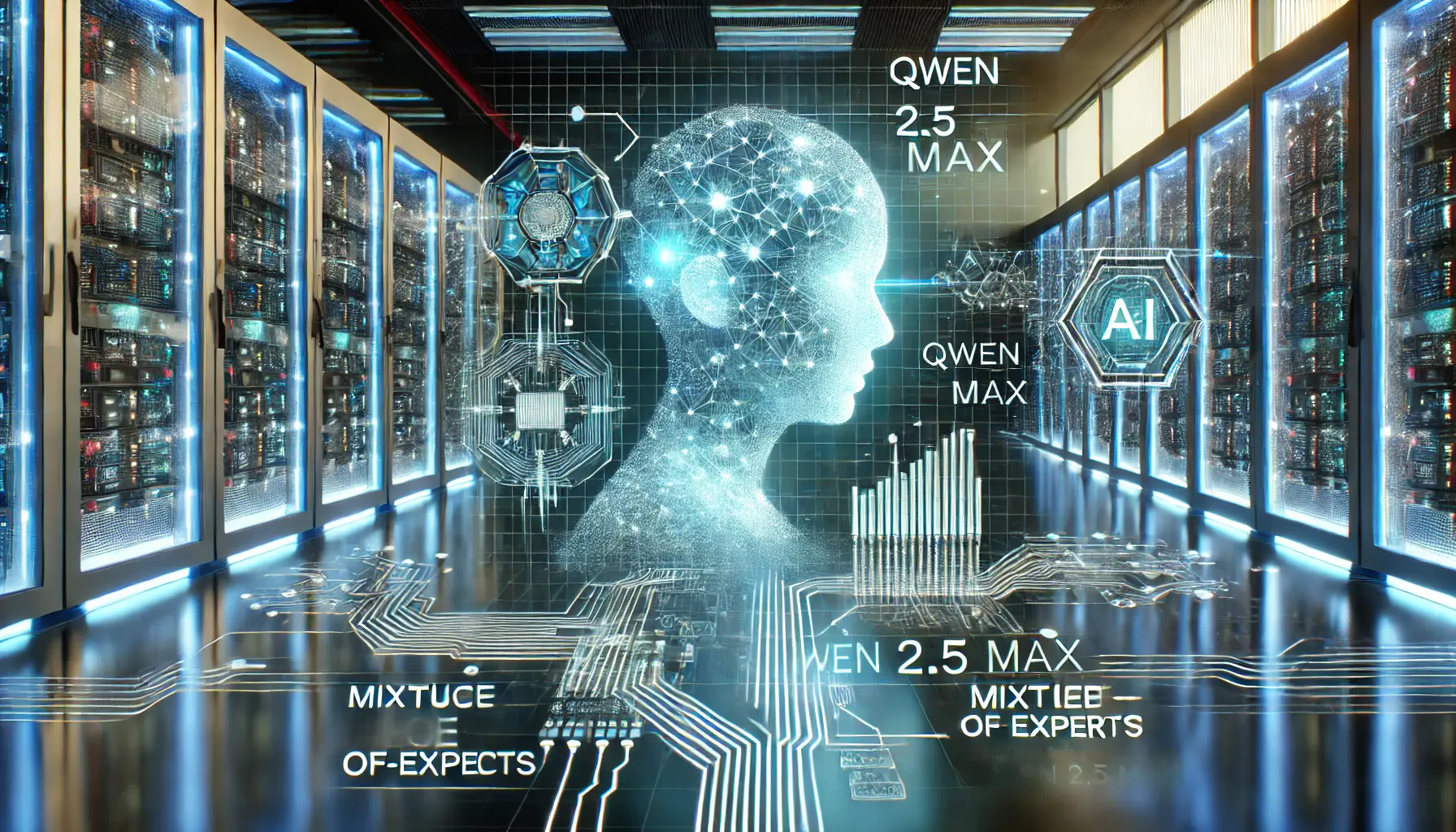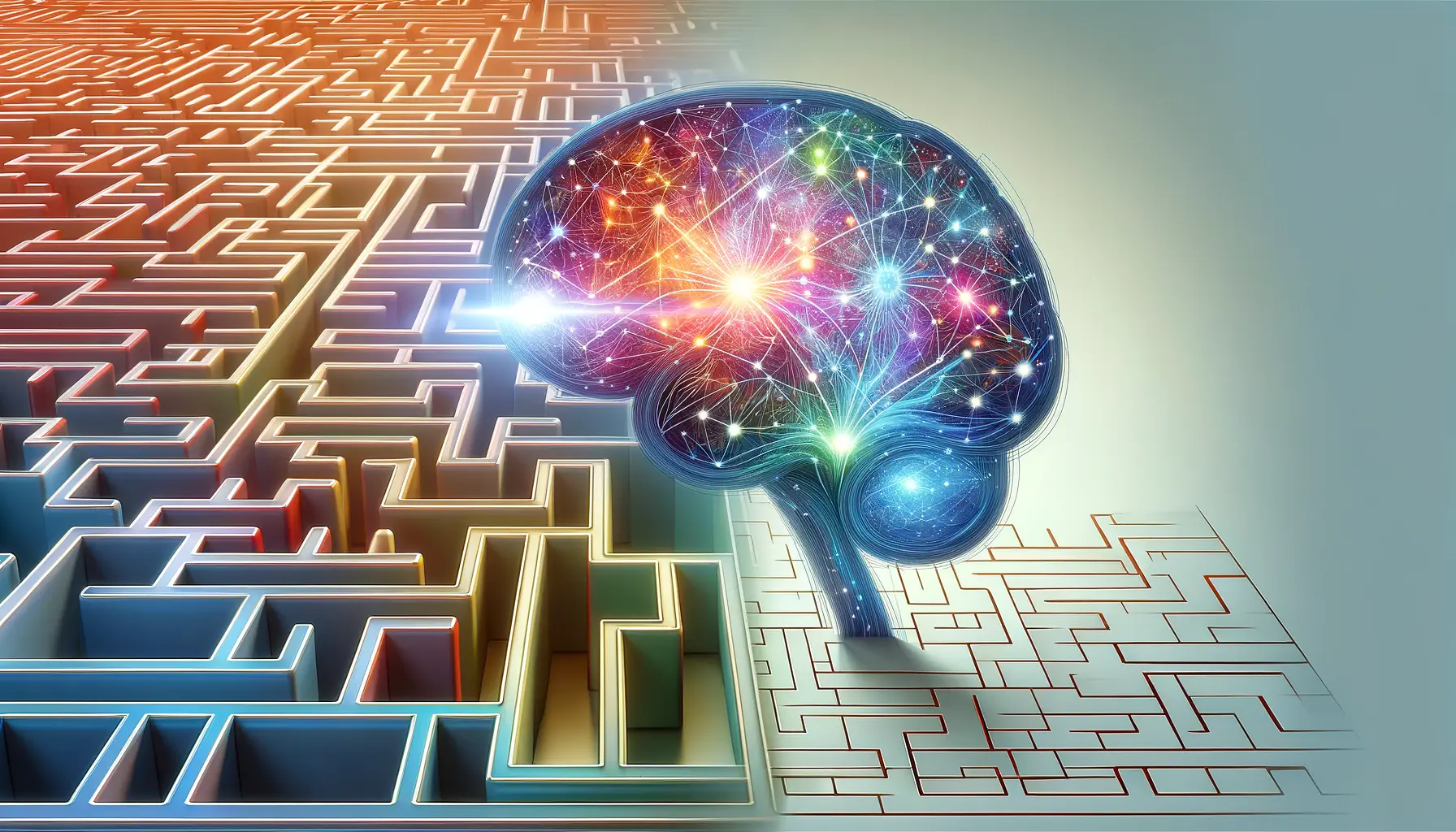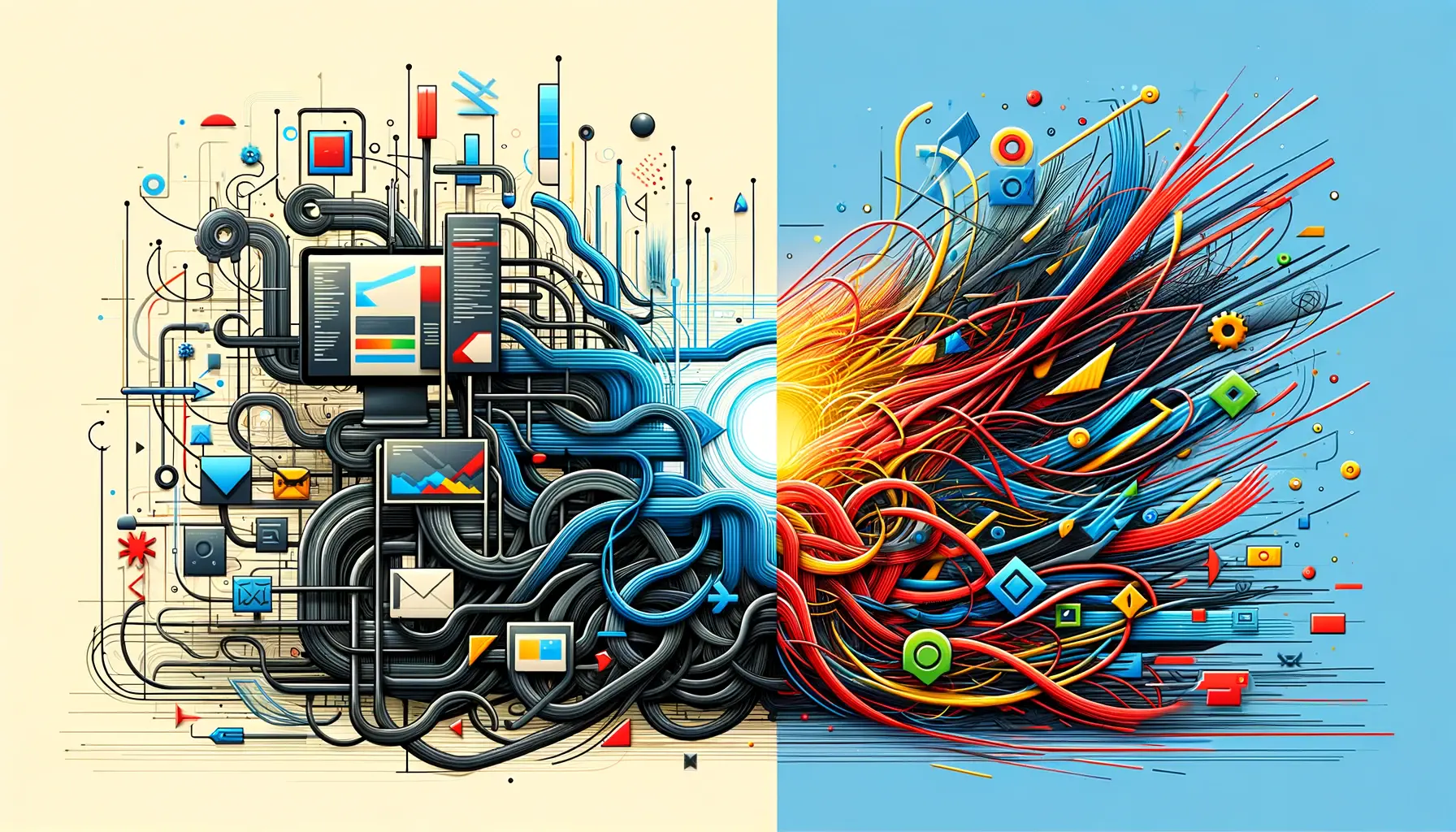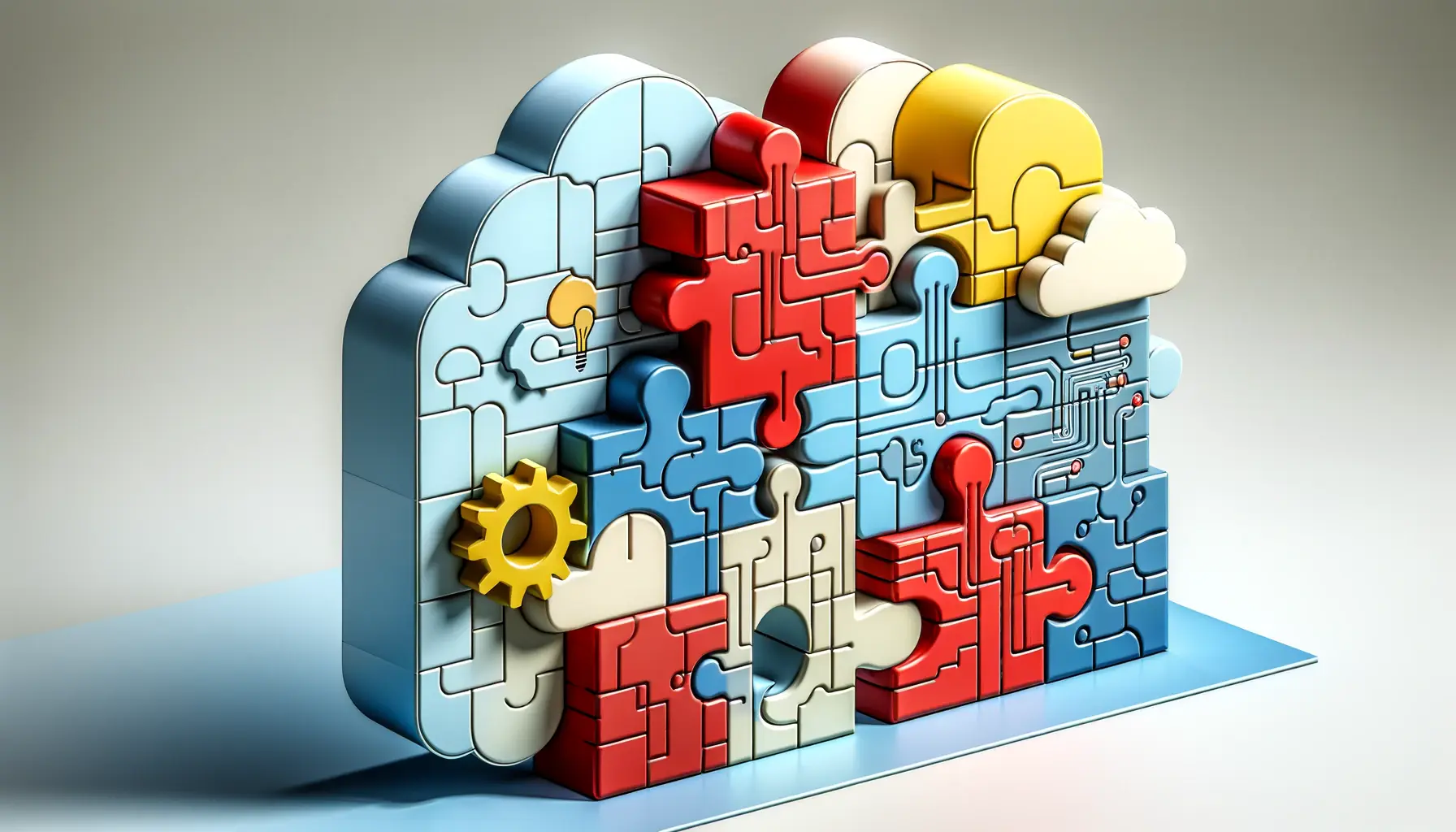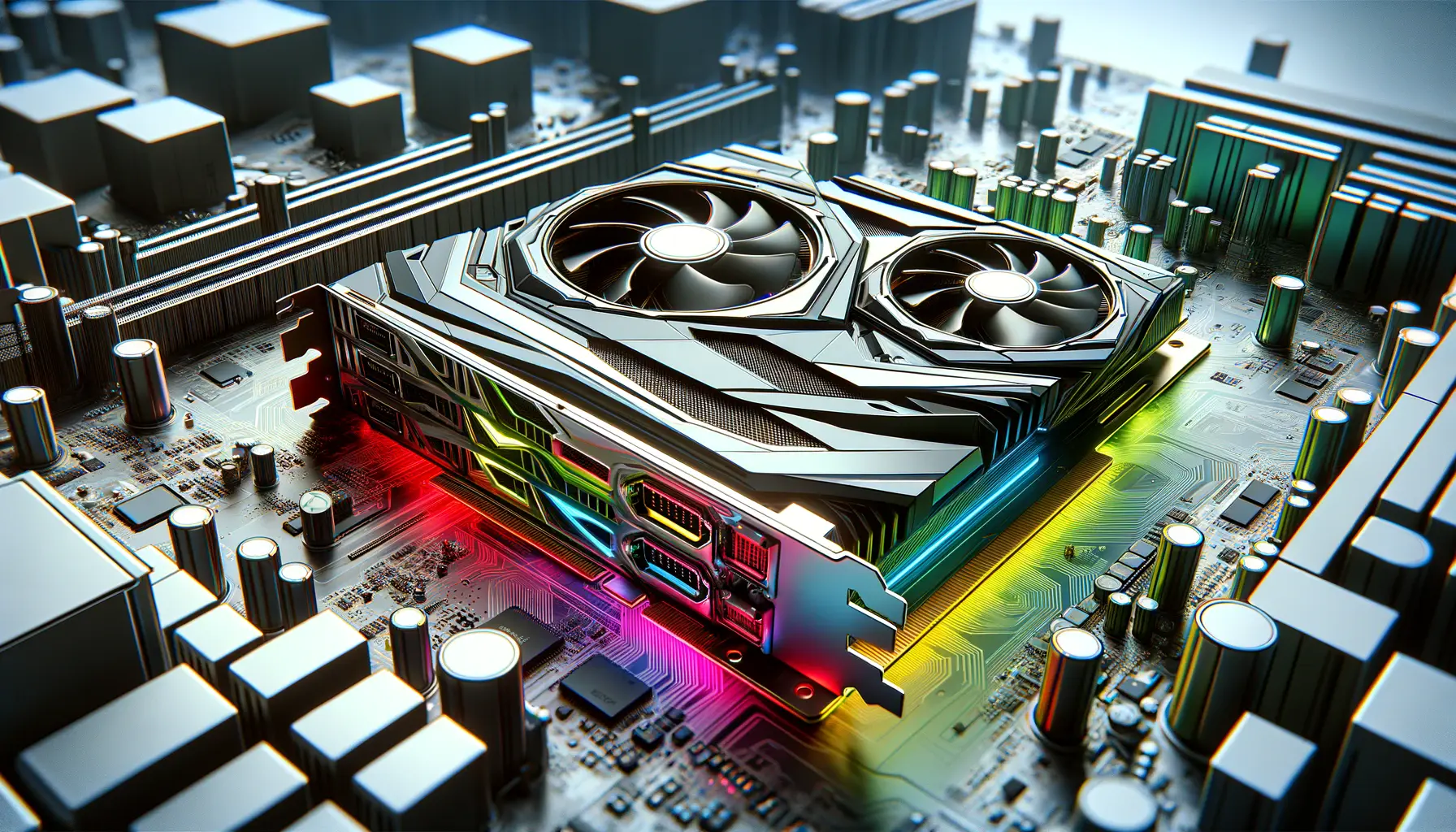The advent of Claude AI marks a significant milestone in the evolution of artificial intelligence, presenting a new frontier of possibilities and challenges.
As a cutting-edge AI model, Claude has been designed to navigate the complex landscape of digital interaction, aiming to enhance user experiences through sophisticated understanding and responses.
However, the journey of integrating Claude AI into various sectors is not devoid of hurdles.
This article delves into the multifaceted challenges faced by Claude AI and explores the strategies employed to overcome these obstacles, ensuring its successful deployment across industries.
At the heart of Claude AI’s development is the pursuit of creating an AI that not only excels in processing and generating human-like text but also in understanding and adapting to the nuances of human communication.
The challenges are manifold, ranging from technical limitations to ethical considerations, each requiring a nuanced approach to address.
By examining these challenges, we gain insights into the ongoing efforts to refine Claude AI, making it a more reliable, efficient, and ethical tool for users worldwide.
- Understanding Claude AI’s Core Challenges
- Enhancing Data Security and User Privacy
- Optimizing User Experience and Interaction
- Advancing AI Ethics and Responsible Use
- Scaling Claude AI for Global Adoption
- Integrating Claude AI Across Industries
- Future Directions and Innovations in Claude AI
- Empowering the Future with Claude AI: A Comprehensive Overview
- Claude AI Challenges: Essential FAQs
Understanding Claude AI’s Core Challenges
The inception of Claude AI was met with great enthusiasm, yet it quickly became apparent that the path to its successful implementation would be fraught with challenges.
One of the primary obstacles is the AI’s ability to comprehend and process the subtleties of human language, including sarcasm, humor, and cultural references.
These elements of communication, so intrinsic to human interaction, pose significant hurdles for an AI designed to interact seamlessly with users across diverse contexts.
Another significant challenge lies in ensuring the ethical use of Claude AI.
As with any powerful technology, the potential for misuse or unintended consequences is a pressing concern.
Ensuring that Claude AI operates within ethical boundaries, respects user privacy, and promotes positive societal impacts is paramount.
This involves continuous monitoring, updates, and the implementation of safeguards to prevent abuse and ensure that the AI’s capabilities are used for constructive purposes.
Technical Limitations and Solutions
Technical limitations also play a crucial role in shaping the development and deployment of Claude AI.
The model’s ability to understand and generate language is heavily dependent on the quality and diversity of the data it has been trained on.
Biases in training data can lead to skewed outputs, reinforcing stereotypes or producing inaccurate representations.
To combat this, developers are focusing on diversifying training datasets and implementing algorithms designed to detect and correct biases, ensuring that Claude AI’s responses are as fair and accurate as possible.
Moreover, the computational demands of running such a sophisticated AI model are substantial.
Ensuring that Claude AI operates efficiently without compromising on speed or accessibility requires ongoing optimization of its underlying algorithms and infrastructure.
This includes leveraging the latest advancements in hardware and software to improve processing speeds and reduce latency, making Claude AI more accessible to a wider range of users and applications.
Overcoming the challenges faced by Claude AI involves a multifaceted approach, addressing both the technical and ethical aspects of its development and deployment. By focusing on improving language comprehension, ensuring ethical use, and optimizing technical performance, Claude AI can fulfill its potential as a transformative tool in various industries.
Enhancing Data Security and User Privacy
In the era of digital transformation, data security and user privacy emerge as paramount concerns, especially for AI technologies like Claude AI.
The ability of AI to process vast amounts of personal and sensitive information places a significant responsibility on developers to safeguard user data against breaches and misuse.
Addressing these concerns is not just about adhering to regulatory requirements but also about building trust with users.
One of the critical steps in enhancing data security involves implementing robust encryption methods and secure data storage solutions.
These measures ensure that user data, whether in transit or at rest, is protected from unauthorized access.
Furthermore, adopting transparent data handling and privacy policies reassures users about the safety and confidentiality of their information, fostering a more trusting relationship between AI applications and their users.
Strategies for Protecting User Data
- Encryption: Utilizing advanced encryption standards to secure data transmission and storage, ensuring that user information remains confidential and tamper-proof.
- Access Control: Implementing strict access controls and authentication mechanisms to limit access to sensitive data, allowing only authorized personnel to handle user information.
- Regular Audits: Conducting regular security audits and assessments to identify potential vulnerabilities and address them promptly, minimizing the risk of data breaches.
Building Trust through Transparency
- Privacy Policies: Developing clear and comprehensive privacy policies that outline how user data is collected, used, and protected, providing users with a clear understanding of their rights and the measures in place to protect their privacy.
- User Consent: Ensuring that user consent is obtained before collecting and processing their data, empowering users to have control over their information.
- Open Communication: Maintaining open lines of communication with users about any changes to privacy policies or data handling practices, reinforcing the commitment to transparency and user privacy.
Protecting user data and enhancing privacy are not just technical challenges but also ethical imperatives for AI development. By implementing robust security measures and fostering transparency, Claude AI can navigate the complexities of data protection, ensuring a secure and trustworthy environment for users.
Optimizing User Experience and Interaction
At the core of Claude AI’s mission is the goal to revolutionize how users interact with digital platforms, making these interactions more intuitive, efficient, and human-like.
Achieving this level of sophistication in user experience (UX) requires overcoming several challenges, from understanding user intent to providing personalized responses.
The optimization of UX and interaction with Claude AI involves a continuous process of learning, adaptation, and refinement.
To enhance the user experience, developers focus on improving the AI’s natural language understanding (NLU) capabilities.
This involves training Claude AI on a diverse range of languages, dialects, and colloquialisms, enabling it to grasp the nuances of human communication more effectively.
Additionally, incorporating feedback loops allows the AI to learn from interactions, continuously improving its responses and interaction quality over time.
Personalization and Adaptability
- Contextual Understanding: Developing algorithms that allow Claude AI to understand the context of interactions, enabling it to provide more relevant and personalized responses.
- User Feedback Integration: Implementing mechanisms for collecting and analyzing user feedback, which is crucial for refining AI responses and enhancing the overall user experience.
- Continuous Learning: Ensuring that Claude AI is designed with the ability to learn from each interaction, adapting its responses based on new information and user behavior patterns.
Enhancing Accessibility and Inclusivity
- Multi-language Support: Expanding Claude AI’s language capabilities to support a wider range of languages and dialects, making it accessible to a global user base.
- Accessibility Features: Incorporating accessibility features to ensure that Claude AI is usable by people with disabilities, including those who require screen readers or other assistive technologies.
- Inclusive Design: Adopting principles of inclusive design in the development of Claude AI, ensuring that it caters to the needs of diverse user groups with varying preferences and requirements.
Optimizing the user experience is a dynamic and ongoing process that requires a deep understanding of user needs and behaviors. By focusing on personalization, adaptability, and inclusivity, Claude AI can offer more engaging and effective interactions, setting a new standard for AI-driven platforms.
Advancing AI Ethics and Responsible Use
The integration of Claude AI into various aspects of daily life and business operations brings to the forefront the critical issue of AI ethics and responsible use.
As AI technologies become more pervasive, ensuring that they are developed and used in a manner that aligns with ethical standards and societal values is paramount.
This challenge encompasses a broad range of considerations, from preventing bias in AI algorithms to ensuring transparency and accountability in AI decision-making processes.
Addressing the ethical implications of AI requires a multifaceted approach, involving the collaboration of developers, regulators, and users.
By embedding ethical considerations into the development lifecycle of Claude AI, stakeholders can work towards creating an AI that not only performs efficiently but also respects human rights and promotes fairness and equality.
Combatting Bias and Promoting Fairness
- Diverse Data Sets: Utilizing diverse and representative data sets in training Claude AI to minimize biases and ensure that its outputs are fair and equitable across different user groups.
- Algorithmic Transparency: Enhancing the transparency of AI algorithms, allowing for greater scrutiny and understanding of how decisions are made, thereby promoting accountability.
- Ethical Guidelines: Developing and adhering to ethical guidelines that govern the use of AI, ensuring that Claude AI’s applications align with societal values and contribute positively to users’ lives.
Ensuring Transparency and Accountability
- Explainable AI: Advancing efforts towards explainable AI, enabling users and stakeholders to understand the rationale behind AI-generated decisions and outputs.
- User Control: Empowering users with greater control over how AI interacts with them and how their data is used, fostering a sense of agency and trust in AI technologies.
- Regulatory Compliance: Ensuring that Claude AI complies with existing and emerging regulations governing AI use, including data protection and privacy laws, to uphold legal and ethical standards.
The journey towards ethical AI is ongoing and requires constant vigilance, innovation, and commitment from all stakeholders involved. By prioritizing ethics in the development and deployment of Claude AI, we can harness the benefits of AI technologies while mitigating their risks and ensuring they serve the greater good.
Scaling Claude AI for Global Adoption
The potential of Claude AI extends far beyond its current applications, with the vision of achieving global adoption across various industries and communities.
However, scaling an AI system like Claude to meet worldwide demand presents unique challenges, from technical scalability to cultural adaptability.
Ensuring that Claude AI can operate efficiently at scale, provide relevant and localized content, and remain accessible to a diverse global audience is crucial for its success on the international stage.
Addressing these challenges requires a comprehensive strategy that encompasses technological innovation, strategic partnerships, and a deep understanding of local markets.
By focusing on scalability from both a technical and cultural perspective, Claude AI can become a truly global AI assistant, capable of serving users from all walks of life, in multiple languages, and with varying cultural contexts.
Technological Innovation and Infrastructure
- Cloud Computing: Leveraging cloud computing technologies to enhance the scalability and reliability of Claude AI, enabling it to handle increasing volumes of requests without compromising performance.
- Edge AI: Utilizing edge computing to process data closer to the user, reducing latency and improving the speed and efficiency of AI responses.
- Modular Architecture: Adopting a modular architecture for Claude AI, allowing for easier updates, maintenance, and customization according to regional needs and preferences.
Cultural Adaptability and Localization
- Local Language Support: Expanding Claude AI’s language capabilities to include a wider range of languages and dialects, ensuring that users can interact with the AI in their native language.
- Cultural Sensitivity: Integrating cultural sensitivity into Claude AI’s responses, recognizing and respecting the cultural nuances and values of different user groups.
- Regional Partnerships: Forming strategic partnerships with local businesses and organizations to tailor Claude AI’s offerings to meet the specific needs and preferences of users in different regions.
Scaling Claude AI for global adoption is a complex but achievable goal. Through technological innovation, cultural adaptability, and strategic partnerships, Claude AI can be tailored to meet the diverse needs of users worldwide, paving the way for its widespread acceptance and use.
Integrating Claude AI Across Industries
The versatility of Claude AI offers transformative potential across a wide range of industries, from healthcare and education to finance and customer service.
However, integrating an advanced AI system into these varied sectors comes with its own set of challenges.
Each industry has specific requirements, regulatory environments, and user expectations that must be carefully navigated to ensure successful adoption and implementation of Claude AI.
To achieve this, a tailored approach that considers the unique needs and constraints of each sector is essential.
This involves not only technical customization but also a deep understanding of the industry-specific challenges and opportunities.
By doing so, Claude AI can be effectively integrated to enhance efficiency, improve user experiences, and drive innovation.
Customization for Industry-Specific Needs
- Healthcare: Adapting Claude AI to comply with healthcare regulations and privacy standards, while providing accurate and timely assistance to patients and healthcare providers.
- Education: Tailoring Claude AI to support personalized learning experiences, automate administrative tasks, and facilitate access to educational resources.
- Finance: Ensuring Claude AI meets the security and compliance requirements of the financial industry, while offering insights and automation to improve financial services.
Overcoming Industry-Specific Barriers
- Regulatory Compliance: Navigating the complex regulatory landscapes of different industries to ensure that Claude AI’s integration is compliant with all relevant laws and standards.
- User Trust and Acceptance: Building trust among industry professionals and end-users by demonstrating the reliability, accuracy, and value of Claude AI’s contributions.
- Interoperability: Ensuring Claude AI can seamlessly integrate with existing systems and technologies within various industries, facilitating smooth adoption and operational efficiency.
Assuming that a one-size-fits-all approach can be applied to the integration of Claude AI across all industries is a misconception. Tailored solutions, industry-specific customizations, and a clear understanding of regulatory and user requirements are key to the successful deployment of Claude AI in diverse sectors.
Future Directions and Innovations in Claude AI
The journey of Claude AI is far from static; it is a path marked by continuous innovation and adaptation.
As we look towards the future, the potential for new developments and applications of Claude AI is boundless.
The focus is not only on enhancing its current capabilities but also on exploring new ways in which this technology can address emerging challenges and opportunities.
The future of Claude AI is shaped by the evolving needs of users, advancements in technology, and the changing landscape of the digital world.
Anticipating the future directions of Claude AI involves understanding the trends in AI research, user expectations, and global challenges.
This foresight enables developers to innovate proactively, ensuring that Claude AI remains at the forefront of AI technology, ready to meet the demands of tomorrow.
The commitment to innovation is crucial for maintaining the relevance and effectiveness of Claude AI in a rapidly evolving digital ecosystem.
Exploring New Applications and Capabilities
- Augmented Reality (AR) and Virtual Reality (VR): Integrating Claude AI with AR and VR technologies to create immersive and interactive experiences for education, training, and entertainment.
- Internet of Things (IoT): Enhancing IoT solutions with Claude AI for smarter homes, cities, and industries, enabling more efficient and intelligent systems.
- Blockchain: Leveraging Claude AI to improve security, transparency, and efficiency in blockchain applications, from smart contracts to decentralized finance (DeFi).
Advancing AI Research and Development
- AI Ethics and Governance: Continuing to lead in the development of ethical AI frameworks and governance models, ensuring that Claude AI’s advancements contribute positively to society.
- Machine Learning Techniques: Innovating in machine learning methodologies to enhance Claude AI’s learning efficiency, accuracy, and adaptability.
- Human-AI Collaboration: Focusing on improving the synergy between humans and AI, making Claude AI an even more intuitive and helpful partner in various tasks and decision-making processes.
The future of Claude AI is not just about technological advancements but also about its impact on society, the economy, and the environment. By embracing innovation and focusing on sustainable and ethical development, Claude AI can continue to transform industries and improve lives, marking a new era of AI-driven progress.
Empowering the Future with Claude AI: A Comprehensive Overview
The journey through the multifaceted landscape of Claude AI challenges and the strategies to overcome them reveals a future brimming with potential.
From enhancing data security and user privacy to optimizing user experience, advancing AI ethics, scaling for global adoption, integrating across industries, and pioneering future innovations, Claude AI stands at the precipice of transforming our digital and real-world experiences.
This comprehensive exploration underscores the importance of addressing the inherent challenges in developing and deploying AI technologies, ensuring they serve as a force for good.
Key Takeaways and Future Prospects
The path forward for Claude AI is illuminated by the continuous pursuit of innovation, ethical considerations, and the drive to enhance user engagement across the globe.
The potential applications and improvements in AI technology promise to revolutionize how we interact with digital platforms, making our experiences more intuitive, personalized, and secure.
The commitment to overcoming obstacles related to data privacy, user experience, and industry-specific integration showcases a roadmap towards a more inclusive, efficient, and ethically responsible AI future.
- Advancements in data security and privacy measures to build trust and ensure user protection.
- Enhancements in natural language processing and personalization to create more meaningful interactions.
- Commitment to ethical AI development to address biases and promote fairness.
- Strategies for scaling and global adoption to make Claude AI accessible to diverse user bases.
- Innovative applications across industries to drive efficiency and transformation.
- Exploration of new technologies and research areas to keep Claude AI at the cutting edge of AI developments.
In conclusion, the evolution of Claude AI embodies the dynamic interplay between technological innovation and the complex tapestry of human needs and societal values.
As we navigate the challenges and embrace the opportunities presented by Claude AI, we are not just witnessing the advancement of a technology but participating in the shaping of a future where AI enhances every facet of human life.
The journey of Claude AI, marked by challenges overcome and innovations achieved, offers a glimpse into a future where technology and humanity converge in harmony, driving progress and prosperity.
Claude AI Challenges: Essential FAQs
Explore the most common inquiries surrounding Claude AI and its capabilities to understand how it’s shaping the future of AI interaction.
Claude AI processes and generates human-like text by understanding context, improving interactions with users across various platforms.
Yes, Claude AI is designed to comprehend and interact in multiple languages, enhancing its global usability and accessibility.
Claude AI builds upon the foundation of models like GPT-3, incorporating advanced features for better performance and interaction.
Yes, Claude AI is capable of engaging in natural and dynamic conversations, adapting to user inputs for more meaningful exchanges.
The Claude AI app is free, offering full access to its features without any premium subscriptions or additional costs.
Yes, Claude AI is accessible globally, allowing users from any location to leverage its advanced AI capabilities.
Users can upload documents to Claude AI for analysis, enabling the AI to provide insights and assistance based on the content.
Continuous research and development efforts are enhancing Claude AI’s conversational abilities, breaking down barriers for more fluid interactions.

